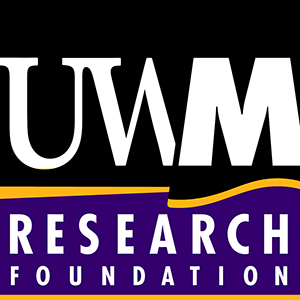SUPPORTING UWM’S ENTREPRENEURS AND THEIR VENTURES
BRIDGE AWARDS
FOLLOW-ON FUNDING
The Bridge Grant Program is aimed at providing essential “bridge” or “gap” funding to startups that have advanced beyond basic government-funded research and are transitioning toward commercialization. Open to faculty, staff, students, and startups across all disciplines, the program seeks to foster the creation of new ventures at UWM. By supporting these startups, the Bridge Grant Program contributes to improving Wisconsin’s economy, creating jobs, attracting talented researchers and students, enhancing local products and services, and positively impacting society as a whole.
UWM is home to a diverse community of researchers engaged in various fields of discovery, and the commercialization outcomes vary based on technology and stage of research. Regardless of the specifics, all projects share a common thread: the dedication and creativity of UWM faculty, students, and staff. The Bridge Grant Program strategically focuses on areas where UWM can have the most significant impact, particularly in science and engineering, helping startups navigate the challenges they face and drive economic growth in Wisconsin.
EARLY STAGE STARTUPS
UWM Entrepreneurs:
The UWM Research Foundation invites proposals for the Bridge Grant Program. Awards range from $5,000 to $25,000, with a funding period of one year, and can support various stages, including translational research, proof of concept, startup formation, and growth.
To be eligible, projects must be directly related to active intellectual property owned by the UWM Research Foundation. This includes invention disclosures, active patent applications, issued patents, or active copyrights. Proposals will be evaluated by industry reviewers, with a strong emphasis on the business case and a solid go-to-market plan. All types of startup products or services are eligible for funding, with the primary objective being the development of commercially viable projects.
Thank you to our Donors:
Generous contributions from Bader Philanthropies, Clarios Corporation, members of the UWM Research Foundation Board of Directors, and UWMRF itself have provided essential early-stage funding for promising UWM startup companies. Through a 1:1 Capital Catalyst matching grant awarded by the WEDC, these donors have helped create opportunities for young companies to overcome early funding challenges, positioning them for future investment and growth. This support not only strengthens these startups but also bolsters economic development in Milwaukee and Wisconsin.
2023 Recipients
Concretology LLC
Dr. Konstantin Sobolev, Professor of civil and environmental engineering, formed Concretology to explore the commerciali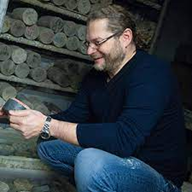 zation of a superhydrophobic spray on coating (water repelling) that can confer corrosion protection, hinder transport of water and chemicals through porous materials, provide self cleaning, prevent icing, and also provide antimicrobial properties. While concrete is the proposed initial surface, this material can be used on a wide array of surfaces including ceramics, metals, and wood for a potential of several years.
zation of a superhydrophobic spray on coating (water repelling) that can confer corrosion protection, hinder transport of water and chemicals through porous materials, provide self cleaning, prevent icing, and also provide antimicrobial properties. While concrete is the proposed initial surface, this material can be used on a wide array of surfaces including ceramics, metals, and wood for a potential of several years.
Freyja LLC
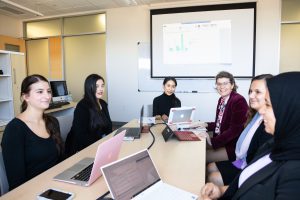
Annually, about 3.7M babies are born in the USA. Maternal and infant outcomes vary across populations, with well-known adverse mother/infant outcomes, especially for African American, Native American, Hispanic women, and in rural areas. Pregnant people need, aside from medical/nursing care delivered in medical offices or clinics, a trusted, informed, community network and support system that helps them navigate and manage their health throughout pregnancy and prepare for childbirth and family life. The MaternityMetrix webapp informs and guides unlicensed community workers and social network members with regional based reporting, and relevant topics that are linked with clinically vetted and curated content from official, professional sites supporting a healthy pregnancy outcome.
Intelligent Composites LLC
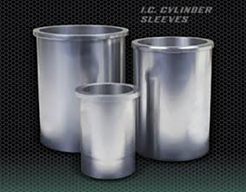 Intelligent Composites LLC is an advanced materials and manufacturing company specializing in the commercial development and use of metal matrix composites (MMC’s) created by Dr. Pradeep Rohatgi, Distinguished Professor of materials science and engineering and CTO of the company. Their novel materials platform makes aluminum stronger and stiffer than traditional aluminum alloys and adds properties of self-lubrication. With the electrification of transportation, there is more interest in optimization of vehicle structures for weight and performance in both electric and internal combustion engine vehicles. The team is working with specialty traditional engine manufacturers to test their alloys in cylinder liners and pistons for snowmobiles and military drones.
Intelligent Composites LLC is an advanced materials and manufacturing company specializing in the commercial development and use of metal matrix composites (MMC’s) created by Dr. Pradeep Rohatgi, Distinguished Professor of materials science and engineering and CTO of the company. Their novel materials platform makes aluminum stronger and stiffer than traditional aluminum alloys and adds properties of self-lubrication. With the electrification of transportation, there is more interest in optimization of vehicle structures for weight and performance in both electric and internal combustion engine vehicles. The team is working with specialty traditional engine manufacturers to test their alloys in cylinder liners and pistons for snowmobiles and military drones.
NanoAffix Science LLC
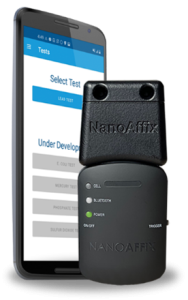 NanoAffix is developing a portable handheld tester and sensor for rapid onsite testing with the goal of selling this product to provide quantitative, real-time, onsite detection of lead and other harmful compounds in drinking water to point of use customers. The target markets include water service providers, schools/daycares, home inspectors, water treatment facilities, well drilling contractors, and other end use customers interested in testing tap water or well water for contaminants. The sensor is more sensitive and less expensive than its direct competitors. The company has already begun a soft launch with some beta testers, and will use the bridge grant to focus on scaling up sensor manufacturing, marketing, and customer outreach and business development.
NanoAffix is developing a portable handheld tester and sensor for rapid onsite testing with the goal of selling this product to provide quantitative, real-time, onsite detection of lead and other harmful compounds in drinking water to point of use customers. The target markets include water service providers, schools/daycares, home inspectors, water treatment facilities, well drilling contractors, and other end use customers interested in testing tap water or well water for contaminants. The sensor is more sensitive and less expensive than its direct competitors. The company has already begun a soft launch with some beta testers, and will use the bridge grant to focus on scaling up sensor manufacturing, marketing, and customer outreach and business development.
Process:
Focus Areas
Any start-up product/service type is eligible for funding. The Bridge Grant Program will make “Gap Fund” awards to foster development of projects further along the continuum toward commercialization.
Process
Full proposals will be reviewed by a selection committee of five members. The committee will include judges such as angel investors, venture capital investors, serial entrepreneurs, business development leaders in industry, or senior research leaders in industry. Each application will be scored.
Timeline
Example Timeline (Depends on funding match)
- 4/7/2025: Call for proposals
- 05/12/25: Deadline for full proposals – by 5:00 PM
- 06/02/2025: Scientific review of full proposals
- 06/06/2025: Target for notification of awards
- 06/30/2025: Target beginning of award period
Evaluation Criteria
Qualification Criteria:
- Applicant must be formed/registered LLC or corporation
- Applicant must have intellectual property owned by UWMRF, a license or option agreement in place with UWMRF, UWMRF holds an equity share in the company, or submit a new invention disclosure for consideration
- UWM team member (employee or student) must be part of the start-up or must have licensed IP from UWMRF; proof of affiliation
- Strength of the team and their advisors
- Must have completed a customer discovery program such as I-Corps, UWM Student Startup Challenge, or Ideadvance or commit to participate in such a program in the year of funding in order to qualify
- Solid description of the business case/technology
- Description of any intellectual property
- Go to market plan
- Quality of the opportunity and competitive advantage
- Specific milestones to be selected for advancement using the grant funding (one or more)
- Exit plan if applicable
- Description of partnerships planned or needed
- Applicants must have raised an aggregate of less than $5M as a formed company from investments or commercialization type grants such as SBIR/STTR
Eligible Costs: Applicants are expected to justify their funding requests based on specific milestones to be reached. Eligible expenses can include, but are not limited to:
- Business services
- Software Developer Service Fee
- Business filing fees
- Market research reports helping you to strategize assumptions to test
- Market research (focus groups; surveys; etc.)
- Travel expenses especially for conferences and customer discovery calls
- Development /Project Management Tools
- Legal/Accounting expenses
- Office/lab rent
- Subscription to data services
- Web/hosting services
- Analytic tools
- Prototype or minimum viable product (MVP) development
- Training and education
- Beta testing/free trials
Ineligible expenses include:
- Basic research support
- Fringe benefits
Investor Evaluation Criteria for Gap Fund Applications: Reviewers will be asked to rank the proposals based on the following criteria:
- Alignment of milestones to Bridge Fund mission and eligibility
- Quality of market opportunity and competitive advantage
- Strength of team to move forward
- Impact of milestones to advance commercialization efforts and reduce risk
- Impact of the proposed use of funds
- Overall likelihood that the product will offer a significant and competitive advantage to customers
Questions?
Confirmation: You should receive a confirmation that your proposal has been received within one business day of submitting it. If you do not receive a confirmation email, please contact the UWM Research Foundation immediately.
Questions should be directed to the UWM Research Foundation: Jessica Silvaggi, jessica@uwmrf.org, 414-906-4654.
